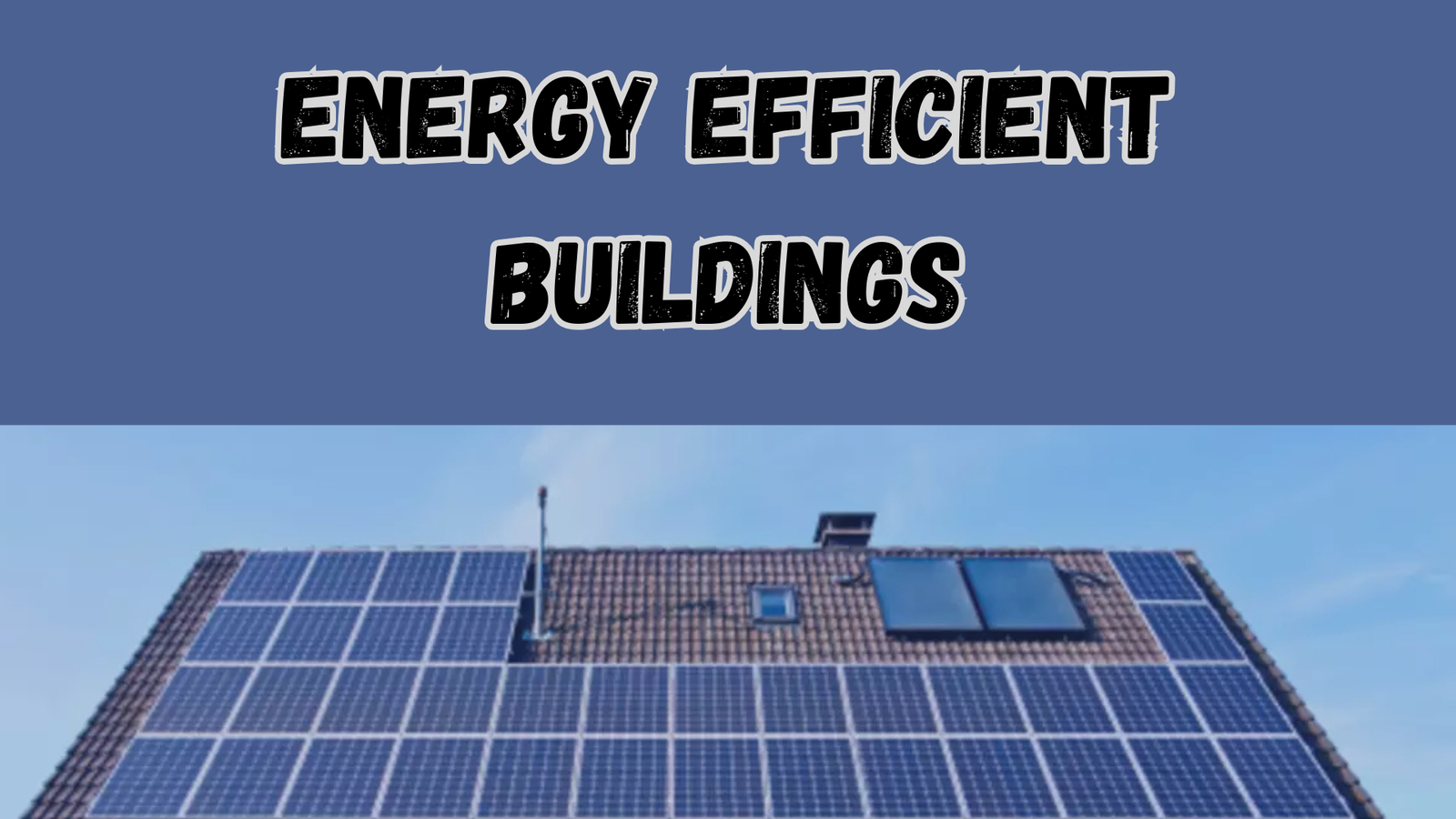Energy-efficient buildings are becoming increasingly important in today world offering both environmental and economic benefits these buildings are designed to use less energy while maintaining comfort making them a smart choice for homeowners businesses and entire communities by using advanced insulation efficient lighting and smart technology energy-efficient buildings help reduce electricity and heating costs lowering monthly expenses they also play a crucial role in protecting the environment by cutting down on carbon emissions which contribute to climate change beyond financial and environmental benefits energy-efficient buildings also improve the quality of life.
Better insulation and ventilation create healthier indoor environments reducing issues like mold allergens and poor air quality this leads to fewer health problems such as respiratory issues and promotes well-being these buildings often use sustainable materials and innovative designs that enhance comfort and aesthetics with rising energy costs and growing concerns about sustainability energy-efficient buildings are becoming the future of construction governments and organizations worldwide are encouraging their development through incentives and regulations for residential or commercial use investing in energy-efficient buildings is a step toward a greener healthier and more cost-effective future.
Environmental Benefits:
Energy-efficient buildings offer significant environmental benefits by reducing energy consumption and lowering carbon emissions traditional buildings rely heavily on fossil fuels for heating cooling and electricity which contributes to air pollution and climate change energy-efficient buildings use advanced technologies such as better insulation energy-saving windows and renewable energy sources like solar panels to minimize their impact on the environment by using less energy these buildings help decrease the demand for power plants which in turn reduces greenhouse gas emissions and slows global warming another major benefit is the conservation of natural resources
These buildings are designed with sustainable materials that have a lower environmental impact such as recycled wood and non-toxic paints these choices help reduce deforestation and pollution caused by traditional construction materials energy-efficient buildings contribute to better air quality by reducing emissions of harmful pollutants improved ventilation systems filter out toxins and allergens creating a healthier living and working environment by adopting energy-efficient buildings we can protect the planet reduce waste and create more sustainable communities for future generations.
Design and Construction Benefits:
Energy-efficient buildings offer many design and construction benefits that make them a smart and sustainable choice one of the biggest advantages is the use of modern materials and innovative construction techniques that enhance both durability and efficiency builders use high-quality insulation energy-efficient windows and airtight designs to minimize heat loss in the winter and keep interiors cool in the summer this reduces the need for excessive heating and cooling leading to lower energy consumption and cost savings over time another key benefit is the integration of smart technology into the design many energy-efficient buildings include automated lighting temperature controls and ventilation systems that adjust based on occupancy and weather conditions.
These features improve convenience and ensure optimal energy use without requiring constant adjustments from occupants energy-efficient buildings are often designed with sustainable and eco-friendly materials such as recycled steel bamboo and non-toxic paints these materials not only reduce environmental impact but also improve indoor air quality making spaces healthier to live and work in the construction of energy-efficient buildings follows green building standards which promote long-term sustainability thoughtful design natural lighting, and proper airflow contribute to a more comfortable and aesthetically pleasing environment.
FAQS:
1. What are energy-efficient buildings?
Energy-efficient buildings are structures designed to use less energy while maintaining comfort and functionality they incorporate technologies like better insulation efficient lighting smart appliances and renewable energy sources to reduce energy consumption and costs.
2. How do energy-efficient buildings help the environment?
These buildings reduce energy demand leading to lower carbon emissions and less dependence on fossil fuels they also conserve natural resources by using sustainable materials and water-saving systems helping to combat climate change and pollution.
3. Do energy-efficient buildings save money?
Yes, they lower electricity and heating bills by reducing energy waste although the initial investment may be higher the long-term savings on energy costs make them a cost-effective choice for homeowners and businesses.
4. What are the health benefits of energy-efficient buildings?
These buildings improve indoor air quality by using non-toxic materials and better ventilation reducing allergens and pollutants this creates a healthier living and working environment lowering the risk of respiratory issues and other health problems.
Conclusion:
Energy-efficient buildings are more than just a trend they are a necessity for a sustainable and cost-effective future by reducing energy consumption they help lower utility bills making homes and businesses more affordable to maintain their positive impact on the environment is also undeniable as they contribute to lower carbon emissions reduced pollution and conservation of natural resources beyond financial and environmental benefits these buildings create healthier and more comfortable living spaces by improving indoor air quality controlling temperature effectively and utilizing smart technology for convenience.
Energy-efficient buildings support long-term sustainability by incorporating eco-friendly materials and innovative construction techniques that enhance durability and efficiency as governments and organizations continue to promote green building initiatives through incentives and regulations the shift towards energy efficiency is becoming more widespread constructing a new building or upgrading an existing one investing in energy-efficient solutions is a smart decision that benefits individuals communities, and the planet.
